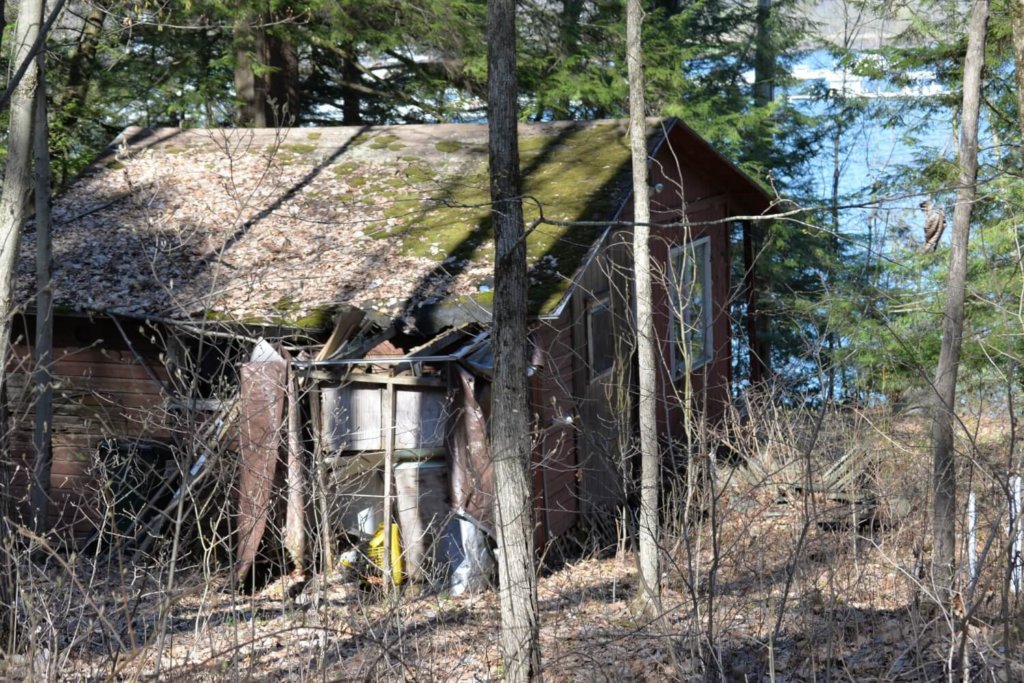Flat Rock Road subdivision dispute headed to court-ordered mediation

The Town of Charlotte and one of its property owners remain divided over the fate of two lots on Flat Rock Road on Thompson’s Point. Or is it one lot? That’s the question both parties seek to answer in a dispute that has been fraught with missteps and complications. Now, nearly a year after the dispute began, it is headed to court-ordered mediation this summer.
The problem originated from a 2014 Selectboard decision in which the owner of lot 127, Paul Arthaud, requested that the town terminate his old lease and create two new leases, dividing the property into lots 127 and 128. The Selectboard granted the request. Shortly thereafter, Arthaud sold 127 and the house built there to Nina Cucchiari and Norman Ernstring. He retained ownership of lot 128 and its small, dilapidated cabin.
All seemed well until 2016, when Arthaud signed an agreement of sale for lot 128 with Carrie and Peter Fenn. The couple applied for a permit to demolish the derelict cabin on 128 and replace it with marginally larger one. On July 12, Charlotte’s zoning board of adjustment denied the permit, saying that the division of lot 127 had been illegal.
Selectboard Chair Lane Morrison acknowledges the misstep on the part of the Selectboard. “We shouldn’t have subdivided,” Morrison said. “We made a mistake.”
Arthaud has claimed the permit denial has cost him about $60,000 in profit and has informally sought recompense from the town, plus up to $10,000 in legal fees. In response, the town has filed a claim with its insurance company VCLT Property and Casualty Intermunicipal Fund. “Right now the insurance company is not supporting that claim,” explains Morrison, though the town continues to pursue it.
Despite numerous Selectboard meetings to address the problem, no satisfactory agreement has been reached, and in August, Arthaud challenged the zoning board of adjustment’s decision by filing an appeal to Vermont’s environmental court. The court ruled that the parties must move to mediation, a fairly typical outcome in the Vermont environmental court system says Arthaud’s lawyer, Liam Murphy. “These things are part of the normal process these days in land-use appeals,” Murphy said. “Most cases do go to mediation unless there’s a real reason for them not to go.”
While he says it’s too early to speculate on the outcome of the mediation, the process could be advantageous for both parties. “My experience has been that many cases can be resolved, because you can be a little more creative in mediation or a settlement than you can where a judge has to make a decision one way or another.”

